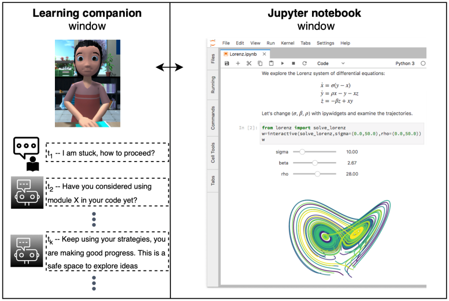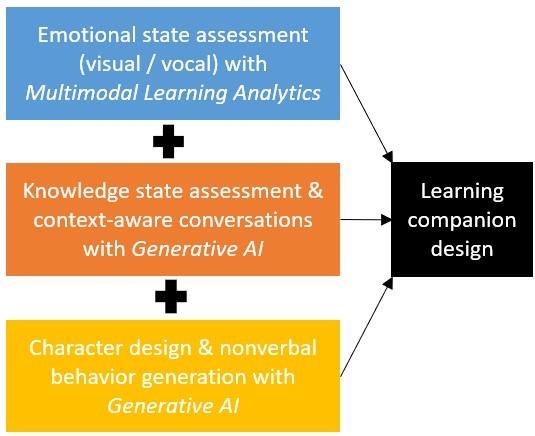Embodied learning companions
 | Motivation |
| |
 | Exemplar use case: Data literacy |
 | |
How can we develop embodied learning companions as an experimentation platform to study the effects of scaffolding on learning through problem-solving? Cognitive (e.g., task/content-focused) Metacognitive (e.g., reflection-focused) Emotional (e.g., regulation-focused) Motivational (e.g., persistence-focused) Relational (e.g., rapport-building focused) | |
 | Solution |
 | |
Ongoing efforts: Frontend: www.tinyurl.com/LC-frontend Backend: www.tinyurl.com/LC-backend Target outcomes: Improved learning (conceptual understanding, transfer) | |

